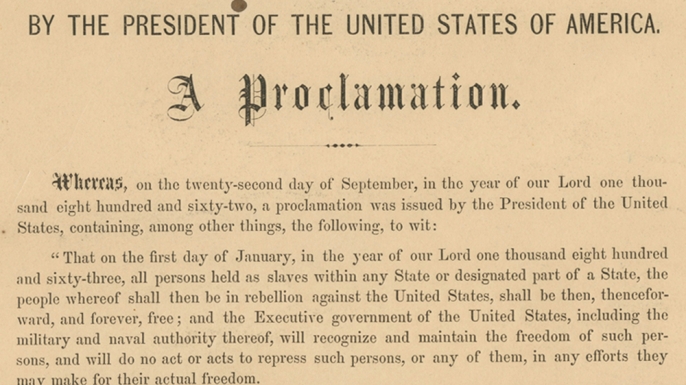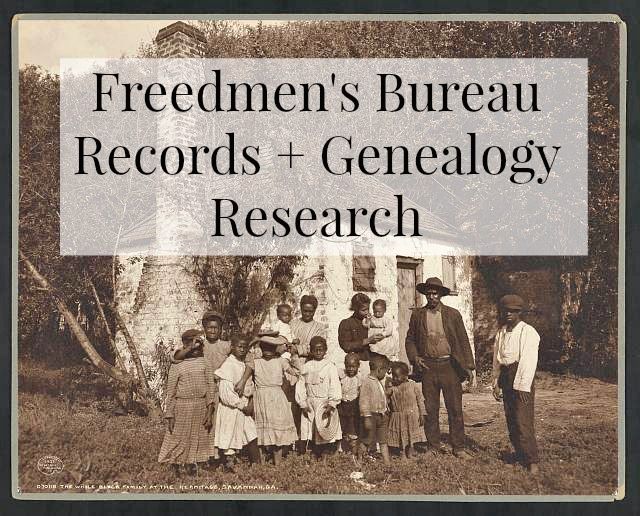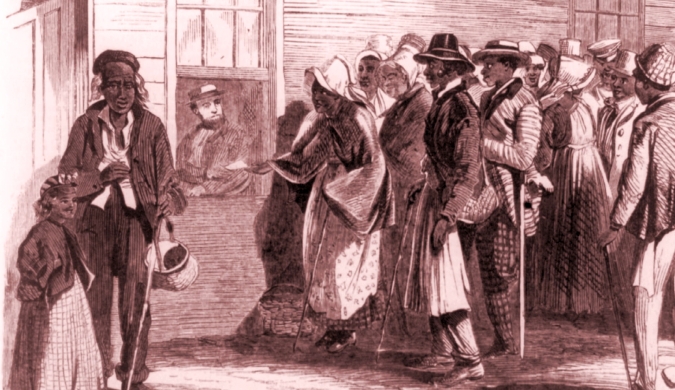
Good Morning POU!

I was free, but there was no one to welcome me to the land of freedom. I was a stranger in a strange land.
— Attributed to Harriet Tubman

As soon as Hawkins Wilson, an enslaved African American from the region outside of Galveston, Texas, realized that he was free, he knew exactly what he would do. He would begin a search to find his family — a family he had not seen or heard from since he was sold from a plantation in Caroline County, Va., 24 years earlier. To facilitate his search, Wilson sent a letter seeking assistance from the Richmond office of the Freedmen’s Bureau, a crucially important, though short-lived, federal agency created to assist the newly freed in this moment of challenge and possibility.

“I am anxious to learn about my sisters, from whom I have been separated many years,” Wilson wrote. “I am in hopes that they are still living.” He then explained that he “was sold at a Sheriff’s sale to a Mr. Wright of Boydtown Court House,” and that he hoped an additional letter that he enclosed could be delivered to his sister.
The pain of his separation and the strength of his desire to reclaim his family are evident in this second letter. “Your little brother Hawkins is trying to find out where you are and where his poor old mother is,” he wrote. “I shall never forget the bag of biscuits you made for me the last night I spent with you.” He added that he had lived an honorable life, so that if they did not “meet on earth, we might indeed meet in heaven.” He ended his letter by asking his sister to write back quickly and said she should not be surprised if “I drop in on upon you some day.”
Unfortunately, there is no evidence that Wilson’s letter was delivered or that he ever reconnected with his family.
To the newly emancipated such as Wilson, freedom was never all that they had hoped, but it was much more than they had ever had.

After they were freed, thousands of former slaves whose families had been dissolved by sale and distance set out to reunite with their relatives from whom they had been forcibly separated.30 Much of the movement was local since many family members lived on neighboring plantations. Some freedmen, however, traveled hundreds of miles to reunite with their loved ones. Occasionally a former slave who had been sold away from his family to the Southwest crossed half the continent to return to his family when he was freed.31 Union military officers were overwhelmed by exslaves who were on the roads, searching for family members from whom they had been separated. Agents of the Bureau of Refugees, Freedmen, and Abandoned Lands, commonly known as the Freedmen’s Bureau, who were hired after the war to provide relief to refugees and ex-slaves, received hundreds of letters from freedmen requesting assistance in locating lost relatives.32 One ex-slave wrote to the Bureau from Texas with a request for assistance in locating “my own dearest relatives” and included a long list of sisters, nieces, nephews, uncles, and inlaws from whom he had been separated when he was sold in Virginia twenty-four years before.33 Others took out advertisements in local newspapers, offering rewards for the return of lost family members.
A typical plea for help was placed in the Nashville Colored Tennessean:
During the year 1849, Thomas Sample carried away from this city, as his slaves, our daughter, Polly, and son….We will give $100 each for them to any person who will assist them … to get to Nashville, or get word to us of their whereabouts.
Although these requests usually ended in failure, some succeeded in reuniting family members. One Union officer wrote his wife in 1865, “I wish you could see this people as they step from slavery into freedom. Men are taking their wives and children, families which had been for a long time broken up are united and oh! such happiness. I am glad I am here.”
A Freedmen’s Bureau officer recounted that family members searched for lost family members “with an ardor and faithfulness sufficient to vindicate the fidelity and affection of any race, the excited joys of the re-gathering being equaled only by the previous sorrows and pains of separation.”
